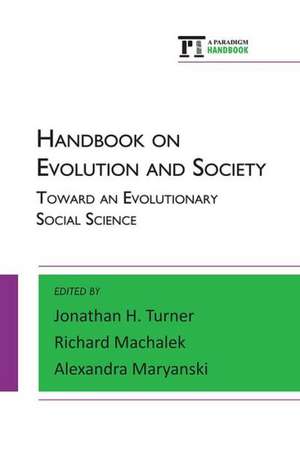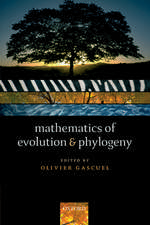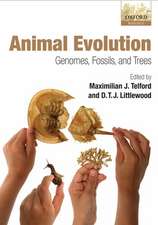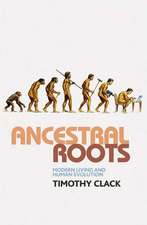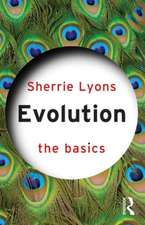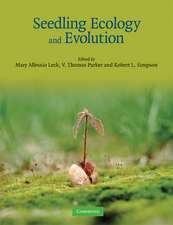Handbook on Evolution and Society: Toward an Evolutionary Social Science
Autor Alexandra Maryanski, Richard Machalek, Jonathan H. Turneren Limba Engleză Hardback – 30 ian 2015
| Toate formatele și edițiile | Preț | Express |
|---|---|---|
| Paperback (1) | 278.25 lei 6-8 săpt. | |
| Taylor & Francis – 16 ian 2023 | 278.25 lei 6-8 săpt. | |
| Hardback (1) | 1948.10 lei 6-8 săpt. | |
| Taylor & Francis – 30 ian 2015 | 1948.10 lei 6-8 săpt. |
Preț: 1948.10 lei
Preț vechi: 2375.73 lei
-18% Nou
Puncte Express: 2922
Preț estimativ în valută:
372.82€ • 387.79$ • 307.78£
372.82€ • 387.79$ • 307.78£
Carte tipărită la comandă
Livrare economică 15-29 aprilie
Preluare comenzi: 021 569.72.76
Specificații
ISBN-13: 9781612058146
ISBN-10: 1612058140
Pagini: 668
Dimensiuni: 156 x 234 x 40 mm
Greutate: 1.09 kg
Ediția:1
Editura: Taylor & Francis
Colecția Routledge
Locul publicării:Oxford, United Kingdom
ISBN-10: 1612058140
Pagini: 668
Dimensiuni: 156 x 234 x 40 mm
Greutate: 1.09 kg
Ediția:1
Editura: Taylor & Francis
Colecția Routledge
Locul publicării:Oxford, United Kingdom
Notă biografică
Jonathan H. Turner is Distinguished Professor of Sociology at the University of California, Riverside, and University Professor for the University of California. He is the author of thirty-eight influential books, which have been published in twelve different languages.
Richard Machalek is Professor of Sociology at the University of Wyoming. His work addresses the evolution of social behavior among both human and non-human species. His publications have appeared in venues such as Sociological Theory, the American Journal of Sociology, Advances in Group Processes, Rationality and Society, and Advances in Human Ecology.
Alexandra Maryanski is Professor of Sociology at the University of California, Riverside. She is the coauthor of four books outlining her approach to a more biological-based sociology, plus another edited book devoted to evolutionary analysis in the social sciences. She is also the author of many dozens of research articles and chapters using data on primates as a lens for understanding human nature and its affects on behavior, interaction, and social organization.
Richard Machalek is Professor of Sociology at the University of Wyoming. His work addresses the evolution of social behavior among both human and non-human species. His publications have appeared in venues such as Sociological Theory, the American Journal of Sociology, Advances in Group Processes, Rationality and Society, and Advances in Human Ecology.
Alexandra Maryanski is Professor of Sociology at the University of California, Riverside. She is the coauthor of four books outlining her approach to a more biological-based sociology, plus another edited book devoted to evolutionary analysis in the social sciences. She is also the author of many dozens of research articles and chapters using data on primates as a lens for understanding human nature and its affects on behavior, interaction, and social organization.
Cuprins
Part One General Issues in Evolutionary Analysis in the Social Sciences; Chapter One Neo-Darwinian Evolutionary Theory and Sociology, Richard Machalek, Michael W. Martin; Chapter Two The Biological Character of Social Theory, Alexander Rosenberg; Chapter Three Modes of Variation and Their Implications for an Extended Evolutionary Synthesis, Marion Blute; Chapter Four Evolutionary Transitions in Individuality and Selection in Societal Evolution, Matthew B. Dunn; Chapter Five The Prospects and Limitations of Evolutionary Theorizing in the Social Sciences, Jonathan H. Turner, Alexandra Maryanski; Part Two Sociobiology and Evolutionary Psychology; Chapter Six Yanomamö: The Sociobiology People, Napoleon A. Chagnon, Shane J. Macfarlan; Chapter Seven Sociobiology at Work in Modern Populations, Rosemary L. Hopcroft; Chapter Eight Evolutionary Psychology and Its Relevance to the Social Sciences, Satoshi Kanazawa; Chapter Nine Where Do We Stand with Respect to Evolutionary Studies of Human Behavior?, John Alcock; Chapter Ten The Evolution of the Social Mind, Jonathan H. Turner; Part Three Evolutionary Sociology; Chapter Eleven Evolutionary Sociology, W. G. Runciman; Chapter Twelve Spencer's Conception of Evolution and Its Application to the Political Development of Societies, Robert L. Carneiro; Chapter Thirteen Darwinian Conflict Theory, Stephen K. Sanderson; Chapter Fourteen The Sociocultural Evolution of World-Systems, Christopher Chase-Dunn; Chapter Fifteen The Evolution of the Human Brain, David D. Franks; Chapter Sixteen The Human Behavioral Ecology of Foragers, Robert L. Kelly; Chapter Seventeen Evolving Communities, Michael D. Irwin; Chapter Eighteen Organizational Ecology, Jonathan H. Turner; Part Four Sex, Gender, and Mating; Chapter Nineteen Marry In or Die Out, Robin Fox; Chapter Twenty On the Origins of Gender Inequality, Joan Huber; Chapter Twenty-One The Evolution of Tenuous Pair Bonding in Humans, Timothy Crippen; Part Five Cooperation, Hierarchy, and Social Control; Chapter Twenty-Two The Evolution of Social Control, Christopher Boehm; Chapter Twenty-Three Human Cooperation, Lee Cronk; Chapter Twenty-Four When and Why Power Corrupts, Charleenn R. Case, Jon K. Maner; Chapter Twenty-Five Biosociology of Dominance and Deference, Allan Mazur; Chapter Twenty-Six Intergroup Threat and Extralegal Police Aggression, Malcolm D. Holmes; Part Six From Primate Legacies to Future Directions; Chapter Twenty-Seven A Salience Theory of Learning and Behavior and Rights of Apes, Duane M. Rumbaugh; Chapter Twenty-Eight Language Use among Apes, Ken Schweller; Chapter Twenty-Nine Evolutionary Sociology, Jonathan H. Turner, Alexandra Maryanski; Chapter Thirty Evolved Human Sociality and Literature, Joseph Carroll; Chapter Thirty-One Contrast Effects in Social Evolution and Schumpeter's Creative Destruction, Michael Hammond;
Descriere
Handbook on Evolution and Society brings together original chapters by prominent scholars who have been instrumental in the revival of evolutionary theorizing and research in the social sciences over the last twenty-five years. Previously unpublished essays provide up-to-date, critical surveys of recent research and key debates. The contributors discuss early challenges posed by sociobiology, the rise of evolutionary psychology, the more conflicted response of evolutionary sociology to sociobiology, and evolutionary psychology. Chapters address the application and limitations of Darwinian ideas in the social sciences. Prominent authors come from a variety of disciplines in ecology, biology, primatology, psychology, sociology, and the humanities. The most comprehensive resource available, this vital collection demonstrates to scholars and students the new ways in which evolutionary approaches, ultimately derived from biology, are influencing the diverse social sciences and humanities.
